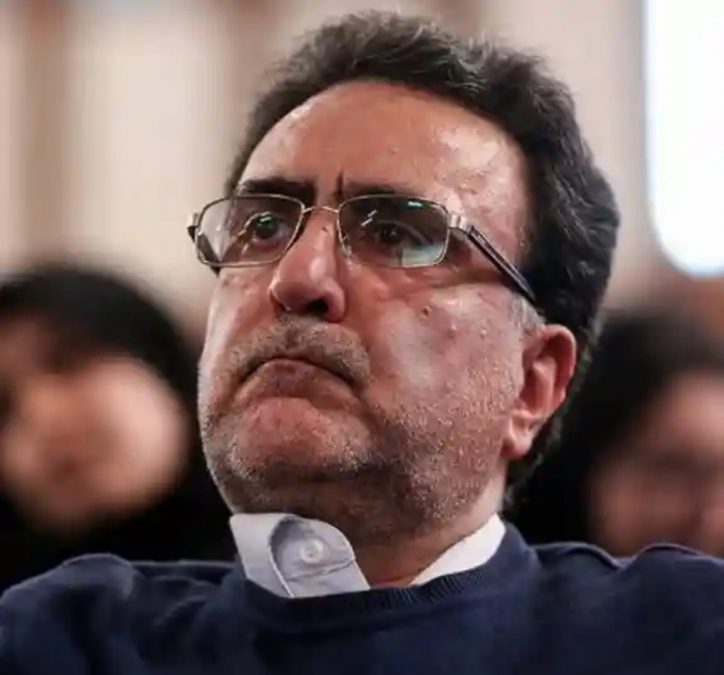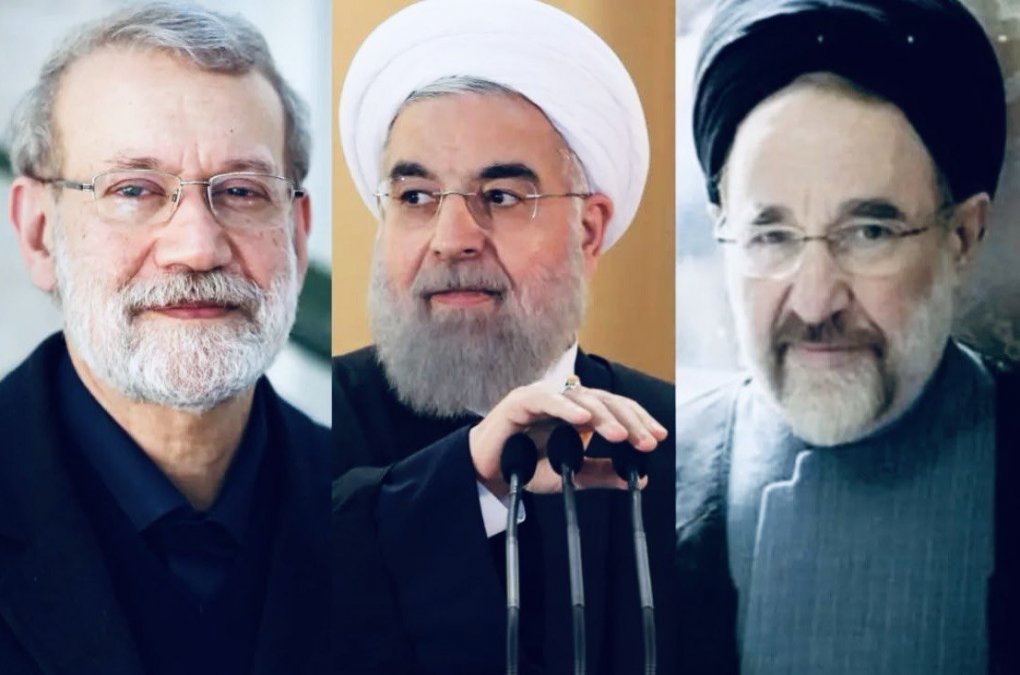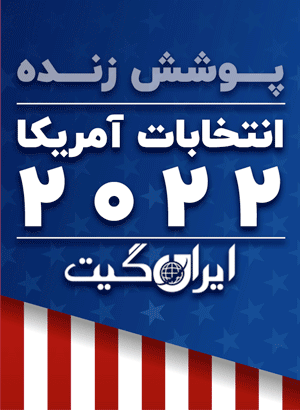Role of Innovators in 2023 in Iran
The role of innovators in 2023 in Iran was unbelievable. All media outlets and a large number of news followers were waiting until midnight, which was the last hour of extending voting in the polling stations for the twelfth term of the Islamic Consultative Assembly and the sixth term of the Assembly of Experts elections, for the news of Seyyed Mohammad Khatami, the leader of the reformist movement, casting his vote. Just like in past elections, Khatami became newsworthy in these elections as well, just like in the seventh presidential election when he entered the race and marked the second of Khordad.
The tenth presidential election in 2009, which did not include Mir-Hossein Mousavi and supported him. The ninth parliamentary elections, which took place after protests and threw the monarchy into the ballot box away from media controversies in Damavand. The eleventh presidential election, which supported Hassan Rouhani and energized the election atmosphere. The tenth parliamentary elections, again, invited people to participate and then, through innovation, turned the tide in favor of Hassan Rouhani and the reformist list in the city council elections.
Once again, he made headlines by not voting and expressed his dissatisfaction with the current situation alongside a large crowd of dissatisfied people. His decision not to vote was in line with his constant warnings to officials about the possibility of reduced participation and people’s disillusionment, where he presented a 15-point reform proposal in the days following the protests of 1401. After the publication of the strategic election document by the Reformist Front, he accompanied it with the view that one should not go to the ballot box at any cost and that there should be at least one election that involves the participation of various spectrum of the nation. And now, since the conditions for such an election did not materialize, he also did not vote and declared that he did not vote consciously.
Hassan Rouhani
A new member of Raja Party, Lotfollah Meisami, has chosen a title for himself and some other political activists for years, saying, ‘We are members of the Raja Party, meaning the marginalized in the Islamic Republic, whose numbers increase day by day.’ The latest person who managed to join the Raja Party is Hassan Rouhani, a person who once had a good position in the right-wing faction but gradually distanced himself from this faction and ultimately faced the most serious confrontation with it this year, leading to a kind of approval for his presence in the Raja Party.
Rouhani, who has been a member of the Assembly of Experts since 2000, registered for the sixth term in the elections, but the Guardian Council rejected his qualification, following a similar pattern seen with many prominent figures, including a former president.
After the disqualification announcement, he issued statements first calling on people to protest through voting, but later emphasized that in this system, the people should determine their own fate, not allow a select minority to dictate their choice. This is not the Islam introduced to the people, and it is not the trust that the people entrusted their lives to. Nevertheless, after his disqualification, he issued statements encouraging people to participate in the election.
Meanwhile, Rouhani’s efforts to obtain reasons for his disqualification continue, and in his latest letter to the Guardian Council, he mentioned that the reasons provided are unsupported and requested the Council to provide evidence for his disqualification reasons.
Ali Larijani
Although the keyword of purification did not have a serious presence in the 11th February elections and the first electoral speculation by media outlets that used to be aligned with him put him in a difficult position, he injected keywords into the country’s political space that will likely challenge the hardline fundamentalists for years to come.
In response to a news report by Tasnim News Agency in April of this year claiming his preparation to enter the future parliamentary elections, Ali Larijani began his denial statement with the sentence ‘There is no concern about the purification movement regarding the parliamentary elections, and purification has quickly garnered praise from some political activists and criticism from others.’
He ultimately did not present a list for the elections but reportedly encouraged others to participate. Larijani’s inclination was towards moderates, although he did not endorse a list. By publishing two video messages supporting the two moderate candidates, Mohammad Bagher Ghalibaf and Gholamreza Tajgardoon, he considered them worthy of entering the parliament.
Ali Larijani’s political presence in the past year was prominent despite not participating in and supporting any specific group in the elections. Speculations about his political future were made, with scenarios considering him as a behind-the-scenes political figure, one of the country’s advisory arms. As a result, his removal from the country’s political scene is not easily possible. Another scenario suggests that he will wait until 1408 (Iranian calendar year) and after thorough analysis of the country’s situation, he will enter the presidential election campaign.
Ahmad Jannati
Farewell to the Assembly of Experts. Perhaps if the country’s political atmosphere was more favorable, the tranquility and stability would not have been disrupted, and the concept of political competition and dynamism in these days would have been defined in its true sense. Along with numerous ifs and buts, one of the important news of the sixth term of the Assembly of Experts elections was Ahmad Jannati not registering, a decision for which Jannati did not specify the reason or provide any explanation. However, if there was an active and non-passive political situation, it could have been a good subject for analyses on the impact of this decision and predictions about its future in many political forums and media outlets.
This news is important from several perspectives. First, Jannati, as one of the permanent figures of the Assembly of Experts, has been present in all five rounds of the assembly and has now decided not to participate in this current term. Secondly, this decision is significant because Jannati had previously stepped down from his positions in various cultural and religious institutions, such as the Supreme Council of the Cultural Revolution, the Council for Coordinating Islamic Propaganda, and the Headquarters for Promotion of Virtue and Prevention of Vice.
The rumor of his farewell to the world of politics is circulating, but since he is still serving as the secretary of the Guardian Council and is still seen as a prominent figure within that institution, such a decision to bid farewell to the political world at the age of 97 has not yet materialized, unless he soon steps down from his most famous political presence in the Guardian Council as well.
Of course, his absence in the sixth round of Assembly of Experts elections and his non-participation in those elections also raise discussions about the chairmanship of this assembly and speculations in this regard. It remains to be seen who will be the sixth chairman of the Assembly of Experts after Ali Meshkini (1369-1386), Akbar Hashemi Rafsanjani (1386-1389), Mohammad Reza Mahdavi Kani (1389-1393), Mohammad Yazdi (1393-1395), and Ahmad Jannati until now (1395).
Mohammad Bagher Ghalibaf
Gray days for the president, the day he decided to seriously engage in politics, he may not have imagined that he would go through such difficult times. Perhaps these days, which have been marked in the year 1402 for Mohammad Bagher Ghalibaf, will be good days for him, and the year ahead will be even grayer than before. In 1402, criticism of his management system in the parliament began by some opponents of principlism. But as the eleventh parliamentary elections approached, controversies about him escalated. A few weeks before the elections, documents were published showing that the son of the parliament speaker was trying to obtain Canadian residency, leading to increased internal criticisms among principlists.
Ghalibaf entered the list of the Coalition of Revolutionary Forces with this controversy and, like in 98, took the top spot on the list. However, with the announcement of the results, it became clear that he had faced a major crisis, and his credibility among the principlists who had gone to the ballot box had been significantly shaken. Ghalibaf, who had received 1.2 million votes in the eleventh parliamentary elections, obtained almost 450,000 votes in this round, reducing his voter base by a third compared to four years ago and becoming the fourth in terms of the number of votes in the capital.
The criticisms and severe comments made by hardline conservative figures about Qalibaf in recent months, along with a significant decrease in his popularity, have led to the perception that the Speaker of the Eleventh Parliament will face a tougher time in the upcoming Twelfth term. Various speculations about his future exist amidst these circumstances.
Some have mentioned the possibility of Qalibaf withdrawing from the Twelfth Parliament. Some have stated that there might be challenges in the approval process of his credentials, and alongside these, the issue of his presidency being repeated and the reduction of his chances to sit on the parliamentary chair again are also being discussed.
Saeed Hajarian
The theorist of reformist purification depicted an important theory in the past year. A few months after Ali Larijani used the term ‘purification,’ he presented his theory on this subject in a note. He begins his theory by stating that purification is neither the beginning nor the end of a process. He then reminds that purification is a middle stage, preceded by stages called ‘purification’ that have led to purification.
Hajarian argues in his theory that the purification process was carried out through supervisory correctness and other eliminatory and propagandistic tools by removing significant portions of political forces. However, after that stage, the purification key was turned, where the passage through loyalists came into play. Hajarian writes that this process will have another stage, which he calls ‘cleansing.’ In this stage, he explains that this cleansing process will be from bureaucracy and the public sphere of anything or anyone considered different.
Of course, he reminds in his theory that the tip of the political critique spear should not focus on the purification stage but should focus on the zero point of this process, which is the loyalty. Alongside this, Saeed Hajarian has expressed other important opinions in the past year. For example, he defended the decision of the Reformist Front not to present a list in Tehran in interviews in the months leading up to the elections.
Furthermore, after the end of the elections, let us shed light on a critique in a note about the opening of a window and pay attention to the fact that this window has been opened not only for this election but for years to come. In every election, a group similar to this will talk about the strategy of opening a window, and this strategy will remain irrevocable forever.
Mustafa Tajzadeh
Protester from prison, Mustafa Tajzadeh, despite being completely imprisoned in 1402, did not stop his activities and expressed various opinions on the current issues of the country, leading to a summons for him in prison. Branch one of the Public and Revolutionary Prosecutor’s Office issued summons for him on charges of assembly and collusion, and propaganda activities against the regime.
The conversations of Tajzadeh with Hossein Razaghi in Evin Prison are part of his activities in prison, where he has openly criticized the closed political atmosphere in the country, the engineering of elections, and warned about the formalization of elections and class divides. In one of his conversations, he explained that free elections in Iran happened until the year 1981, but since the Mujahideen took up arms and assassinated high-ranking officials, the space became heavily securitized and political freedom gradually disappeared.

Tajzadeh emphasized in one of his conversations that changing the constitution should be seen as a prerequisite for structural changes in Iran. He criticized those who call for participation in elections, stating that those who invite people to participate in parliamentary elections either aim to reform the structure through their representatives via legislation, or they are not really seeking structural reform and do not understand what the structure entails.
Because anyone who has only once reviewed the constitution knows how much the legislative body is intimidated by the appointed higher authorities. Ultimately, he boycotted the twelfth parliamentary elections, leading to new restrictions being imposed on him in prison.
He also commented on the February 11 elections, stating in a note that these elections were engineered. He referred to these elections as a historical defeat based on the number of voters and the percentage of elected votes. He considered it the smallest step towards gaining the trust and satisfaction of the majority of dissatisfied citizens with the current situation. He is still in prison, and there has been no change in his situation yet.
Persian
مشاهده این مقاله به زبان فارسی


